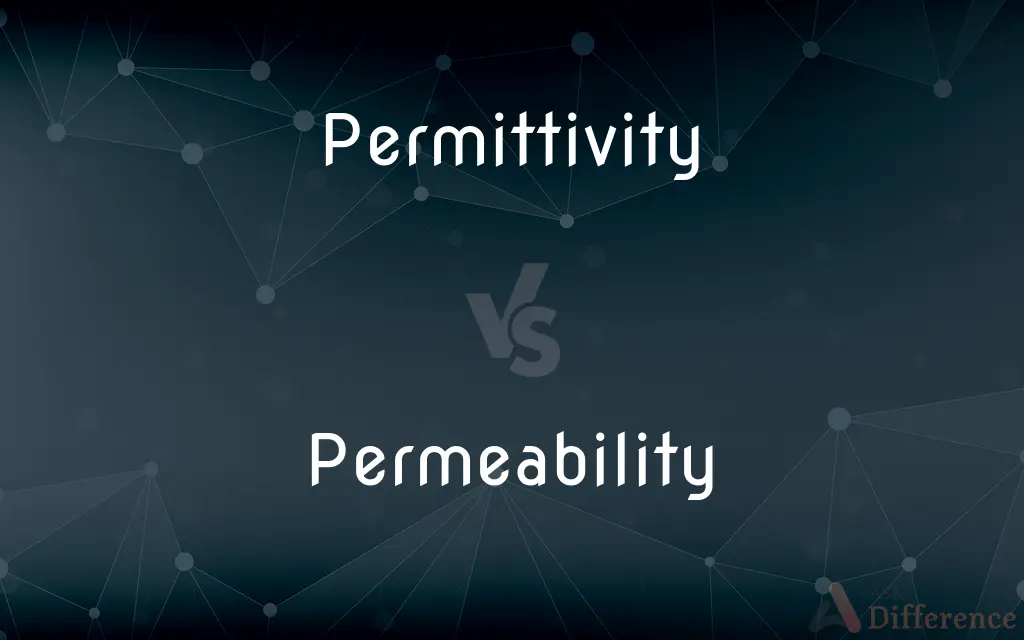Permittivity vs. Permeability — What's the Difference?

Difference Between Permittivity and Permeability
ADVERTISEMENT
Compare with Definitions
Permittivity
In electromagnetism, the absolute permittivity, often simply called permittivity and denoted by the Greek letter ε (epsilon), is a measure of the electric polarizability of a dielectric. A material with high permittivity polarizes more in response to an applied electric field than a material with low permittivity, thereby storing more energy in the material.
Permeability
The property or condition of being permeable.
Permittivity
A measure of the ability of a material to interact with an electric field and become polarized by the field, weakening the field within the material. The permittivity of a material is the product of the dielectric constant of the material and the permittivity of a perfect vacuum, which is defined to be about 8.854 × 10-12 farad per meter.
Permeability
The rate of flow of a liquid or gas through a porous material.
Permittivity
(physics) A property of a dielectric medium that determines the forces that electric charges placed in the medium exert on each other.
ADVERTISEMENT
Permeability
The property of being permeable.
Permeability
The rate of flow of a fluid through a porous material.
Permeability
(geology) A measure of the ability of a rock to transmit fluids (such as oil or water).
Permeability
(physics) A quantitative measure of the degree of magnetization of a material in the presence of an applied magnetic field (measured in newtons per ampere squared in SI units).
Permeability
The quality or state of being permeable.
Permeability
The property of something that can be pervaded by a liquid (as by osmosis or diffusion)
Share Your Discovery

Previous Comparison
Gateway vs. Switch
Next Comparison
Tort vs. Crime














































